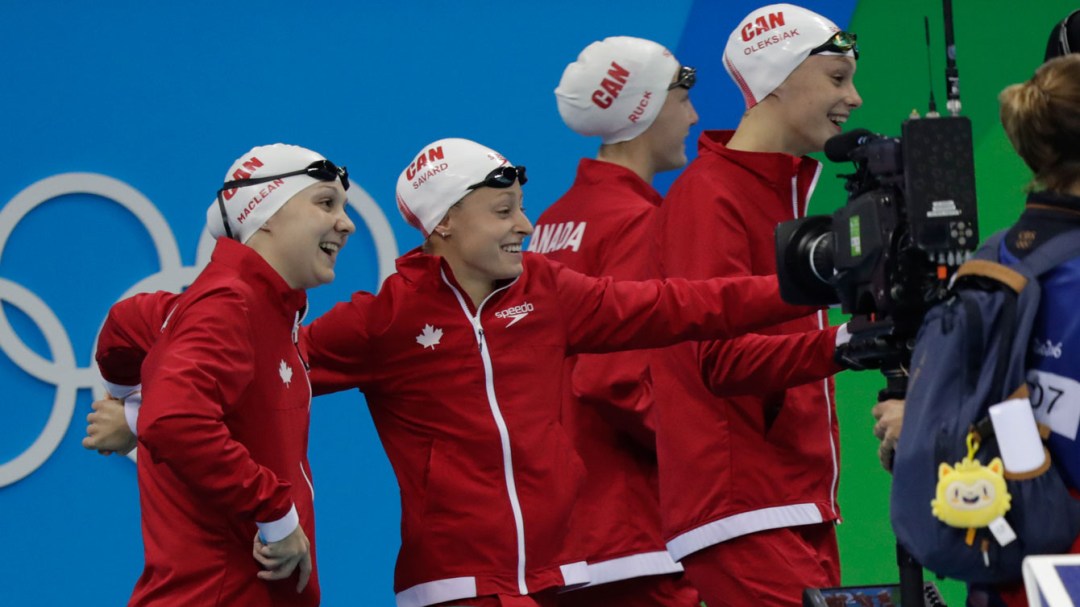Fun and full team effort lead to Canada’s history-making relay medal
“Who wants to get an Olympic medal tonight?”
That’s what the members of the 4x200m freestyle relay team asked themselves as they sat in the ready room waiting to walk out to the pool deck for their chance at making Canadian history on Wednesday.
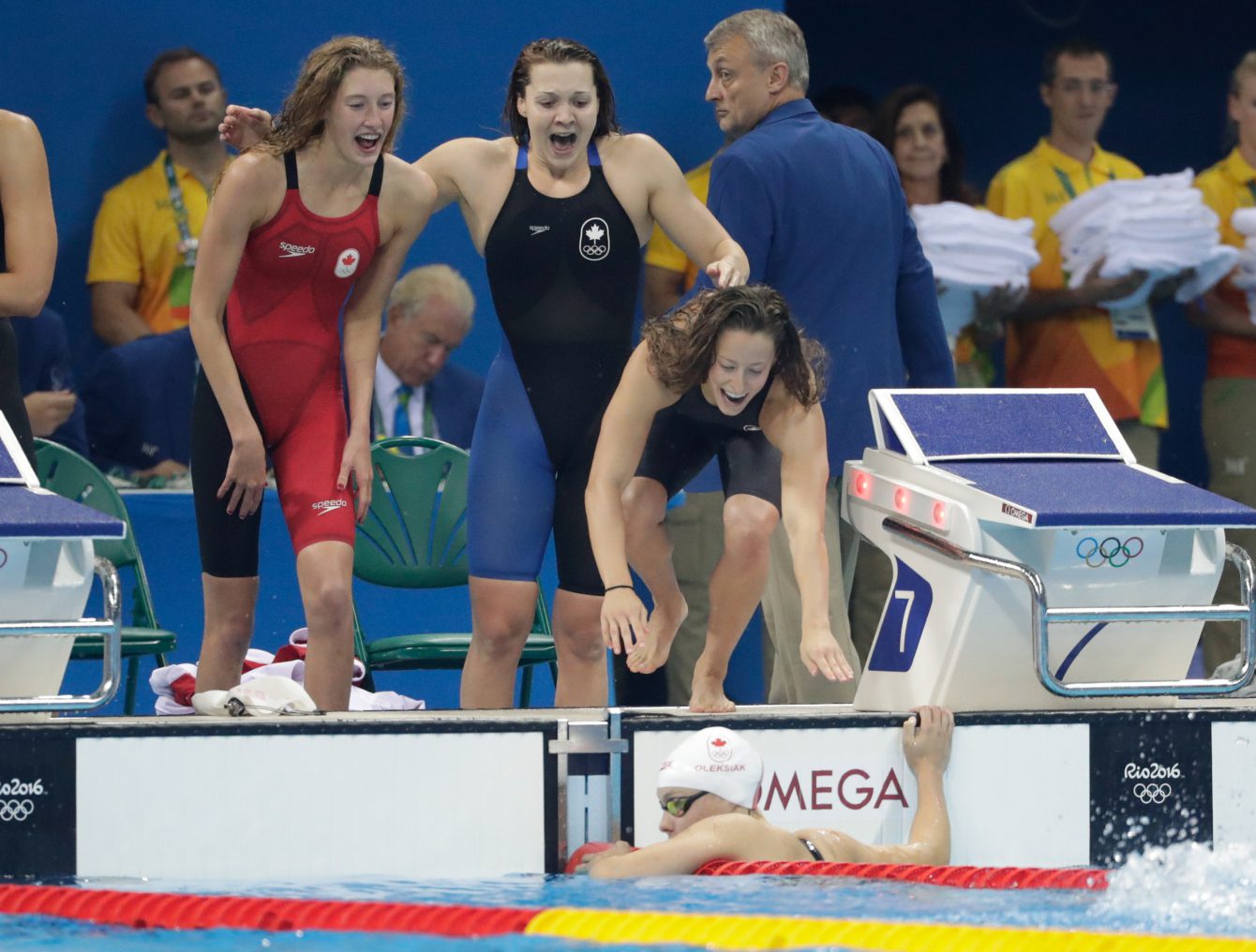
The Rio 2016 4x200m freestyle team wins bronze with Taylor Ruck, Penny Oleksiak, Brittany Maclean and Katerine Savard on August 10 2016. (Jason Ransom/COC)
Shortly after midnight, they had their answer as Katerine Savard, Taylor Ruck, Brittany MacLean and Penny Oleksiak stood on the podium receiving bronze medals. It was the first time Canada had ever won an Olympic medal in the event and kept alive the country’s five-day medal streak to start the Games.
RELATED: Canada wins second Olympic swimming relay medal at Rio 2016
“We were trying for bronze,” leadoff swimmer Savard acknowledged afterwards. “We were realistic and we knew that the Australians and the Americans were going to be really fast and we were just going for bronze actually, so we just gave everything. We were sixth in the prelims so we had nothing to lose.”
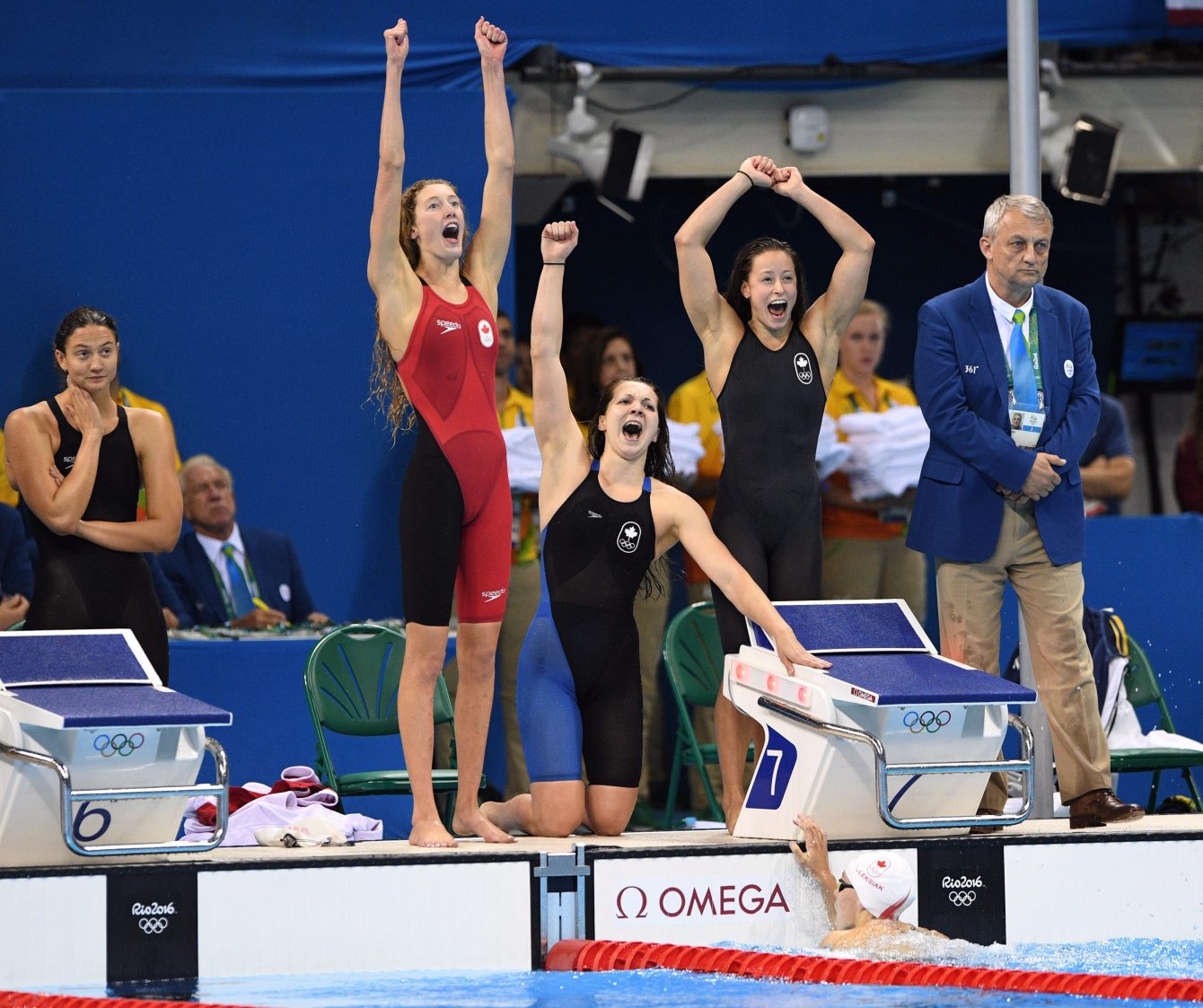
Canada’s Taylor Ruck, left to right, Brittany MacLean, Katerine Savard and Penny Oleksiak take bronze in the women’s 4 x 200m freestyle relay during the 2016 Olympic Summer Games in Rio de Janeiro, Brazil in Wednesday, Aug. 10, 2016. THE CANADIAN PRESS/Sean Kilpatrick
Swimming in that afternoon heat in place of Oleksiak and MacLean were Emily Overholt and Kennedy Goss, who will also receive bronze medals. For Overholt, the start came as a surprise when MacLean was unable to go.
“I had a bit of sinus issues and congestion, I woke up with a bit of a fever so they advised, since I still have another race (800m freestyle) to do in the morning, ‘we’ll try to get by without you’, and they stepped it up big time,” said MacLean. “By this afternoon I felt like I could make the call and I was ready to race and I knew the adrenaline would take me over. I’ve trained so hard for this that I knew I was fit enough to stand on the blocks tonight and I’m glad I did and I think that all six girls deserved that podium moment and we’ll make sure they get their medals they deserve.”
For Goss, the medal allows her to make some history of her own. She and her father Sandy, who won a pair of 4x100m medley relay silvers at Los Angeles 1984 and Seoul 1988, become the first father-daughter combination to win Olympic medals for Canada.
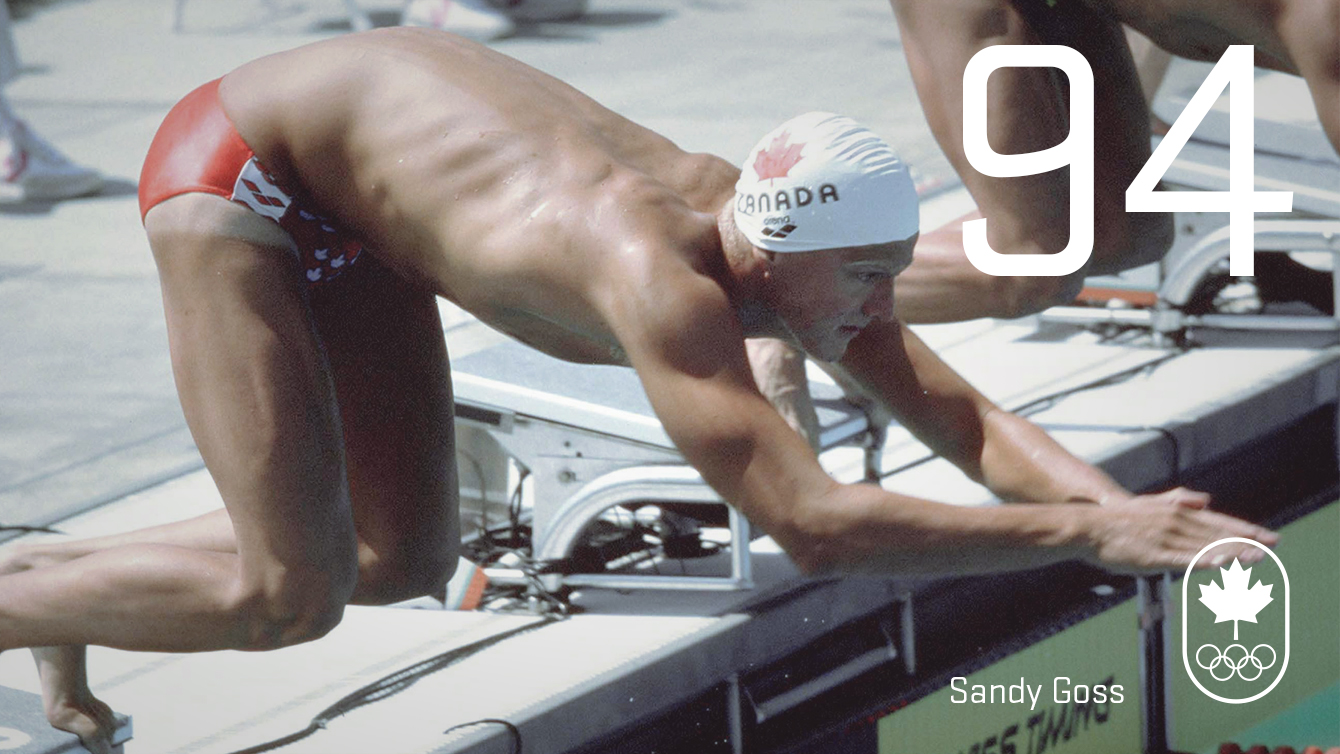
Sandy Goss featured in the Team Canada Rio 2016 countdown from Los Angeles 1984
“Coming from his legacy makes it that much more special,” the younger Goss said. “Being able to share this moment with him, he was up in the stands, so I’m very happy that I can do that.”
With two 16-year-olds on the squad in Ruck and Oleksiak, it’s not surprising that their youthful exuberance has also rubbed off onto the other swimmers. As the foursome were introduced for the final, Savard and MacLean held hands, swinging them between them.
“I’ve had a little bit of an up and down Games so far but I wanted to have fun tonight and I haven’t really been doing that,” said MacLean, who previously made it to the 400m freestyle final and the 200m freestyle semis. “You know you’re at the Olympic Games, you want to have fun. When you’re on a relay team it provides you that opportunity. You’re around the other girls, they’ve also worked just as hard as you to get where you are and we were kind of the underdogs and that’s the best place to be. No one was really expecting us to medal but we all believed it was possible.”
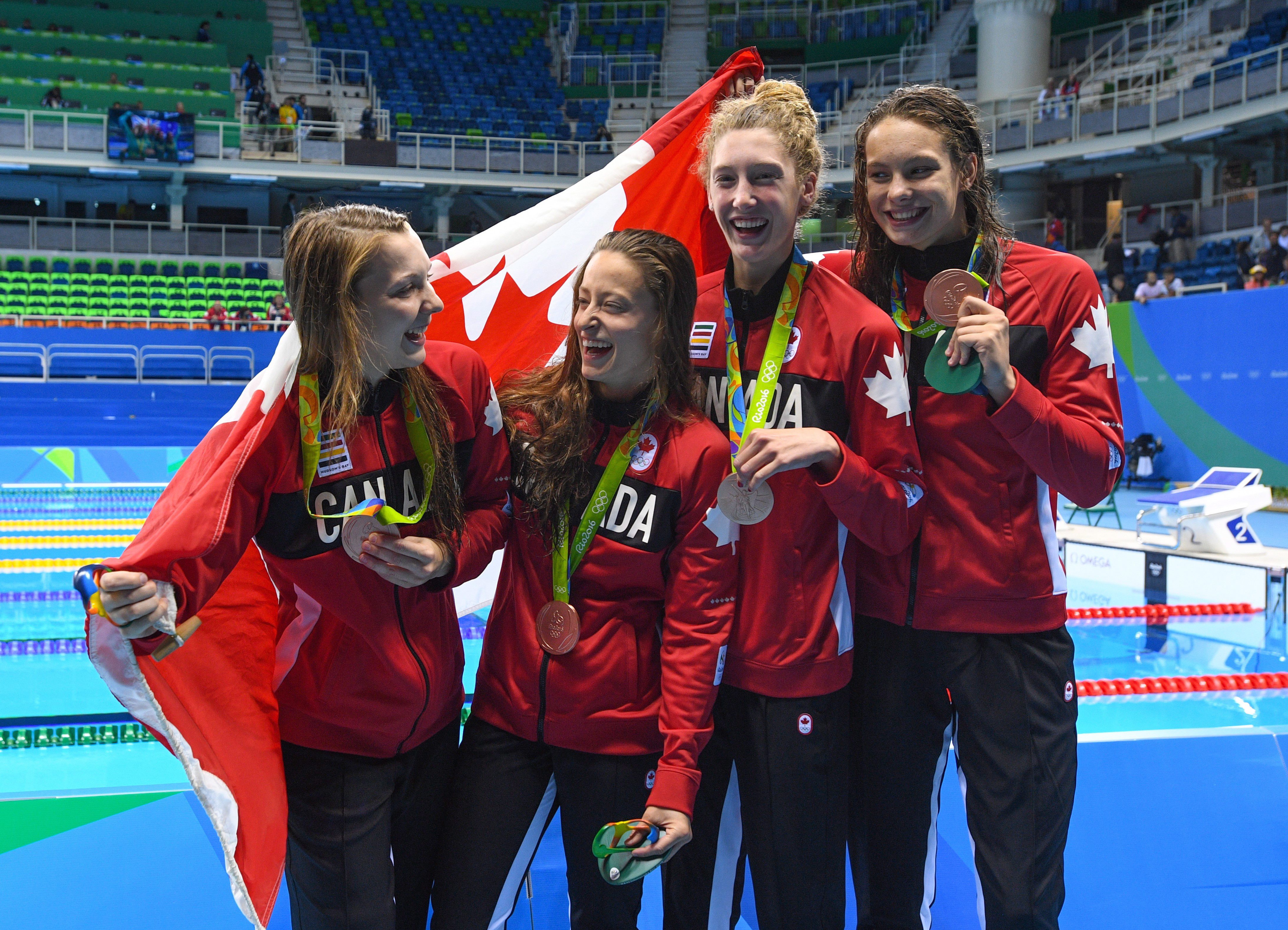
Canada’s Brittany MacLean, Katerine Savard, Taylor Ruck, and Penny Oleksiak take bronze in the women’s 4 x 200m freestyle relay during the 2016 Olympic Summer Games in Rio de Janeiro, Brazil in Wednesday, Aug. 10, 2016. THE CANADIAN PRESS/Sean Kilpatrick
“It was a difficult year physically and mentally,” said Savard, who had questioned her future in the sport after a disappointing national trials at which she did not qualify for Rio in her specialty stroke, the butterfly. “If someone had told me in April that I will be on a freestyle podium, I never would have believed it. I take this opportunity as a positive message.”
After Savard swam the first leg, Ruck took to the water and moved Canada from sixth into a tie with China for third place.
“After the first hundred I saw a little bit that I was catching up to the people beside me so that definitely gave me confidence going into the last hundred,” said Ruck, who along with Oleksiak became the first ever Olympic medallists born in the 2000s after winning bronze in the 4x100m freestyle relay.
Asked whether the trips to the podium were getting old, she responded: “No, it just gets better every time.”
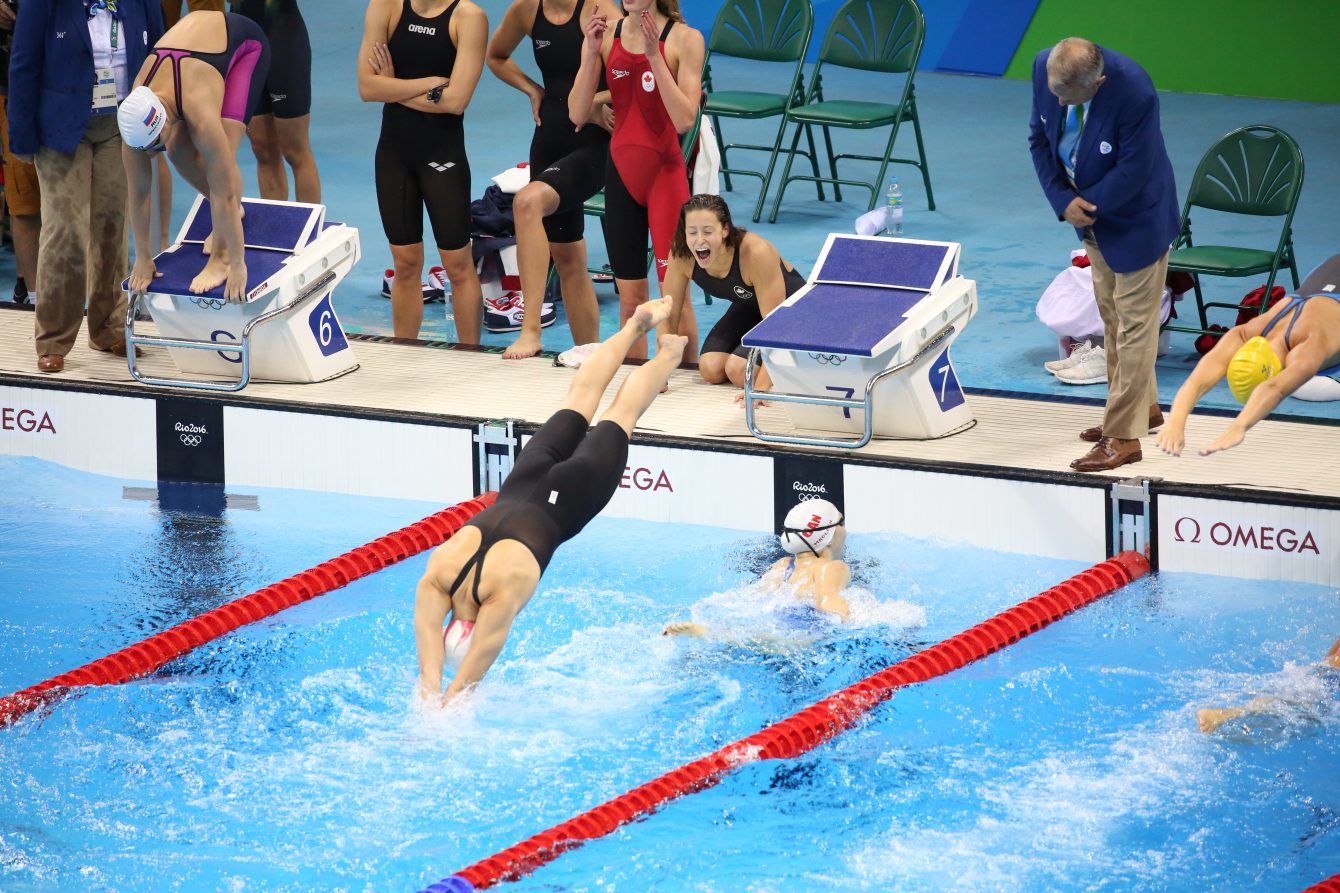
The Rio 2016 4x200m freestyle team exchanges into its final leg with Taylor Ruck, Penny Oleksiak, Brittany Maclean and Katerine Savard on August 10 2016. (Steve Boudreau/COC)
As in the 4x100m free, Oleksiak again swam the anchor leg, taking over from MacLean who had kept Canada in bronze medal position. About an hour and a half earlier she had finished second overall in the 100m freestyle semifinals, posting a time of 52.72 seconds that was a world junior, Canadian and Americas record and just 0.01 off the Olympic record set in her semi by Australian Cate Campbell.
“We knew if we put ourselves in a position before Penny dove in that anything was going to be possible,” said MacLean. “She’s been closing so incredibly.”
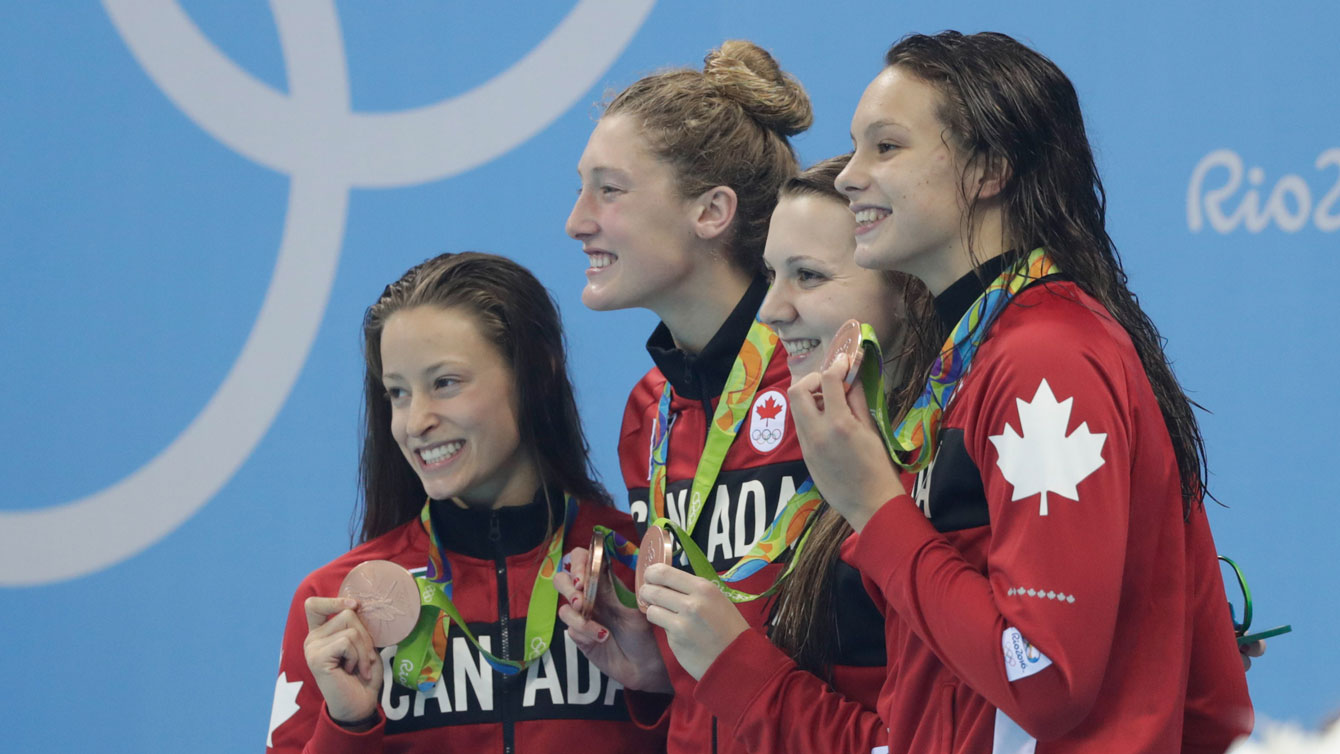
The women’s 4x200m freestyle relay team celebrate their Olympic bronze medal on August 10, 2016 in Rio de Janeiro.
“Our coaches thought we would finish fourth,” added Savard. “When we saw the incredible time of Penny in the semifinals of the 100 metres, we knew that she would get the job done in the relay. No matter where she would be as the anchor, we knew that she would finish strong.”
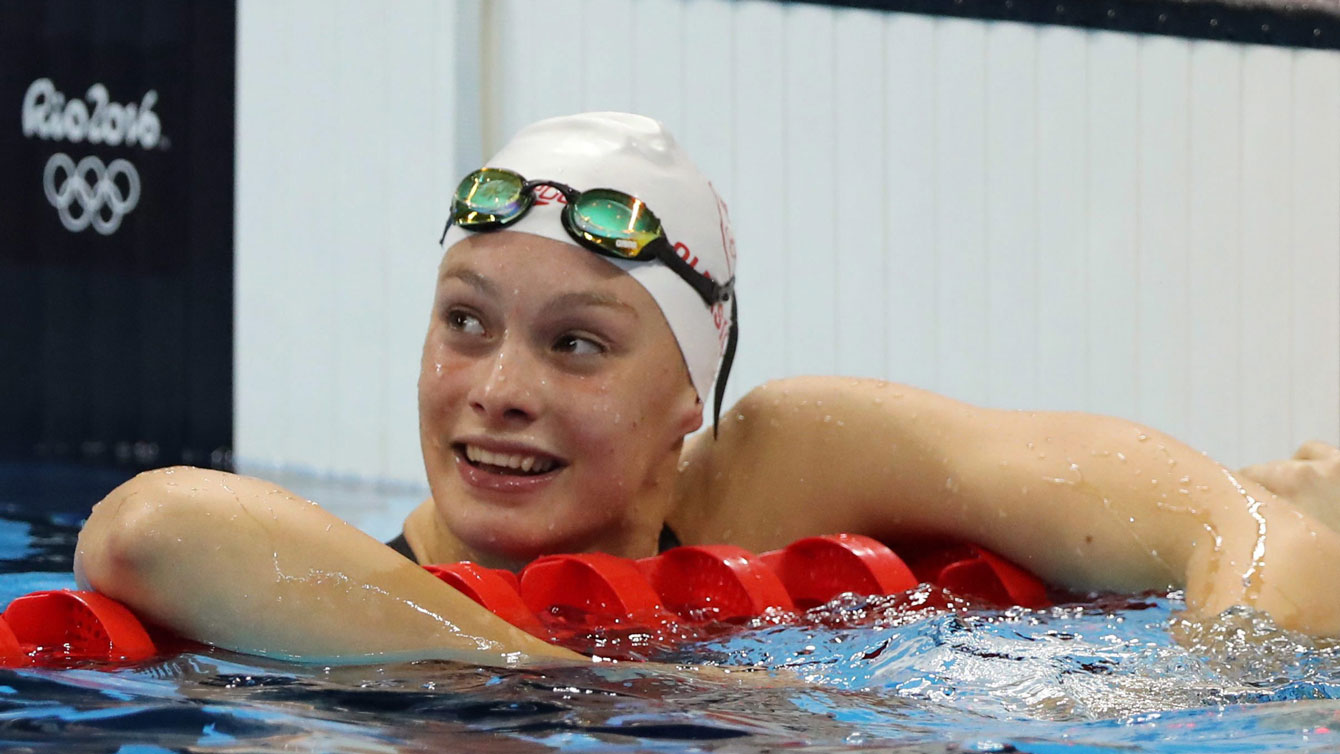
Penny Oleksiak after her 100m freestyle semifinal at Rio 2016 Olympic Games on August 10, 2016.
With her third medal of the Games, Oleksiak tied the Canadian record for most won at a single edition of the summer Games, matching the accomplishments of swimmers Anne Ottenbrite (1984), Victor Davis (1984), Elaine Tanner (1968) as well as track athletes Alex Wilson (1932) and Phil Edwards (1932). She also became the first Canadian to win at least three Olympic medals before their 17th birthday. She will compete in the 100m freestyle final Thursday night.

